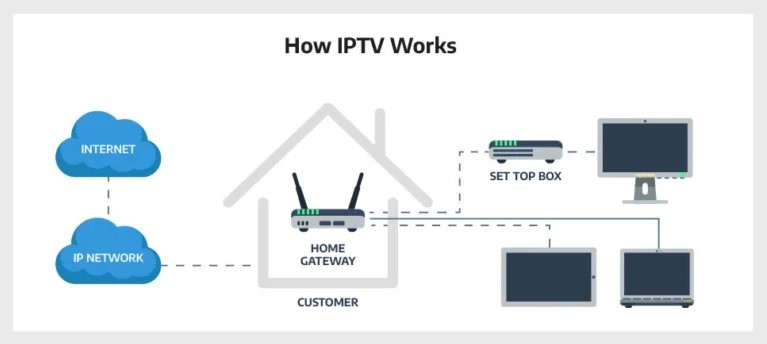To start an IPTV business can be a lucrative and rewarding venture, providing a valuable service to customers who want access to a wide range of television programming options. However, there are several key steps that need to be taken in order to successfully launch and run an IPTV business. In this article, we will provide a step-by-step guide on how to start an IPTV business, including everything from choosing the right business model and obtaining the necessary licenses and permissions to selecting the right technology and building a customer base.
Digitonika offers you a Free Trial IPTV Pannel test without commitment or payment

Research your market
Researching the market is essential to understanding the potential success of different models. It can provide important insights into the competitive landscape, allowing entrepreneurs to understand the pricing and service offerings of the competition and identify best opportunities to differentiate the business.
Market research can help identify the potential user base, the types of content they are interested in, and what they are willing to pay for IPTV services. This data can be used to identify the optimal business model and set competitive pricing.
Choose the right IPTV business model
The first step in starting an IPTV business is to decide on the right business model. There are several options to consider, including offering a subscription-based service, a pay-per-view service, or a combination of the two.
It can even be an ad-based service where the service is free or offered at a lower price while revenue is generated through advertising. Each option has its own pros and cons, and the right choice will depend on factors such as the target market, the type of content being offered, and the overall business strategy.
Obtain the necessary licenses and permissions
In order to legally offer IPTV services, it is essential to obtain the necessary licenses and permissions from the appropriate authorities. This will typically involve obtaining a license from the relevant copyright holders (like studios and networks) for the content being offered and any necessary licenses or permits from local or national regulatory bodies.
It is important to carefully research the licensing requirements in the country or region where the business will be operating and to ensure that all necessary licenses and permissions are obtained before launching the service. This can be a challenging and time-consuming process, but it’s essential in order to offer a compelling service to your customers.
Select the right solution providers and suppliers for your IPTV business
The success of an IPTV business will depend heavily on the technology used to deliver the service. There are several key factors to consider when choosing the right technology, including the type of content being offered, the target market, and the overall business strategy. To offer a high-quality IPTV service, you’ll need to invest in servers, encoders, and streaming software.
You will also need to invest in additional hardware and software, such as set-top boxes and content management systems, to support your operations. You will also benefit from a solution developed by a specialized IPTV billing provider. It is important to carefully research the available options and select the technology that will best meet the needs of the business and its customers.
Promote your IPTV business
Once you’ve got the technical side of things sorted out, you’ll need to develop a marketing strategy to attract and retain customers. One of the key challenges faced by IPTV businesses is promoting their services. This involves developing a marketing and advertising strategy to attract new customers and retain existing customers. You’ll also need to invest in customer support systems and processes to ensure that your customers receive high-quality service. In order to be successful, it is important to continuously evaluate and improve the marketing and advertising efforts, as well as the customer service strategy.

What is IPTV? – Beginner’s Guide
IPTV refers to internet-based protocol television, where the Internet is used to provide live or on-demand television programs and videos. IPTV is a system in which digital television services are provided to users via broadband or Internet-connected media via Internet protocol technology.
IPTV services allow you to access multiple TV channels using an Internet connection. Some of the services will be free, while others will charge a monthly subscription fee. And many paid IPTV services will offer live TV channels, including live sports. The IPTV service will also offer a range of movies.
Digitonika offers you a Free Trial IPTV test without commitment or payment
How IPTV Works

While traditional TV sends analog signals to users via cables, IPTV sends them over a managed, private internet network. Unlike traditional TV, which can only broadcast content in real time, IPTV has servers for storing content. That gives users the freedom to watch programs at will (if their IPTV provider allows this option).
The entire content delivery process is quite simple and can be illustrated in a few steps:
- The user requests to watch a specific program, and the IPTV provider receives the request.
- IPTV provider processes the request and transmits a video stream from their server to the end user.
- The content stream travels through the secure, private network toward a gateway on the user’s end.
- The content is delivered in packets to the playback device via the real-time streaming protocol (RTSP) before compressing them to optimize for playback.
But for all the above to be possible, your TV must be able to read the signals received over the internet protocol. Unfortunately, not all TVs can set up an IPTV service right off the bat since most can’t read the signals received without external help. If you have a TV set that isn’t IPTV compatible, you will have to buy an IPTV set-top box.
